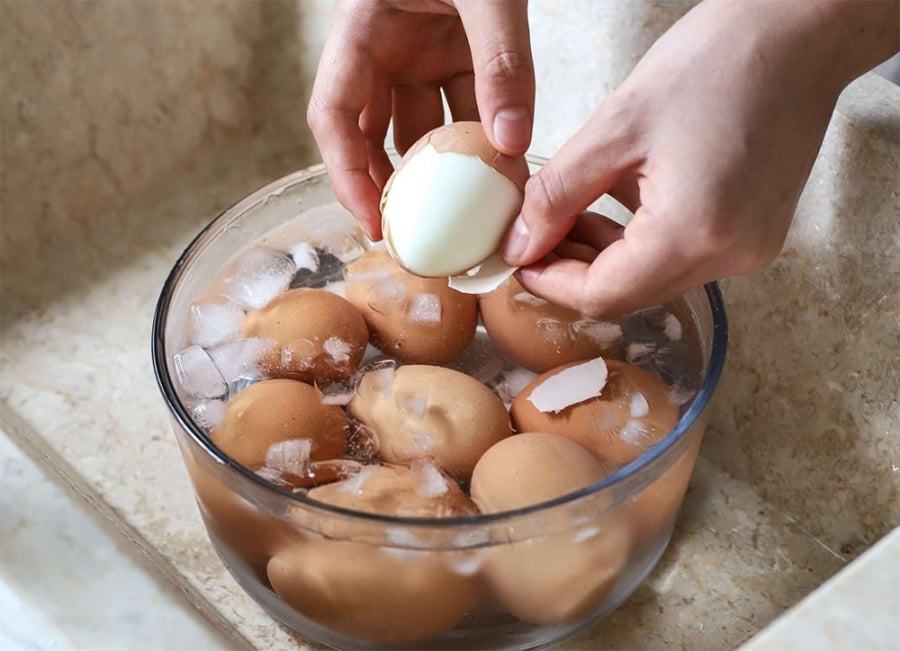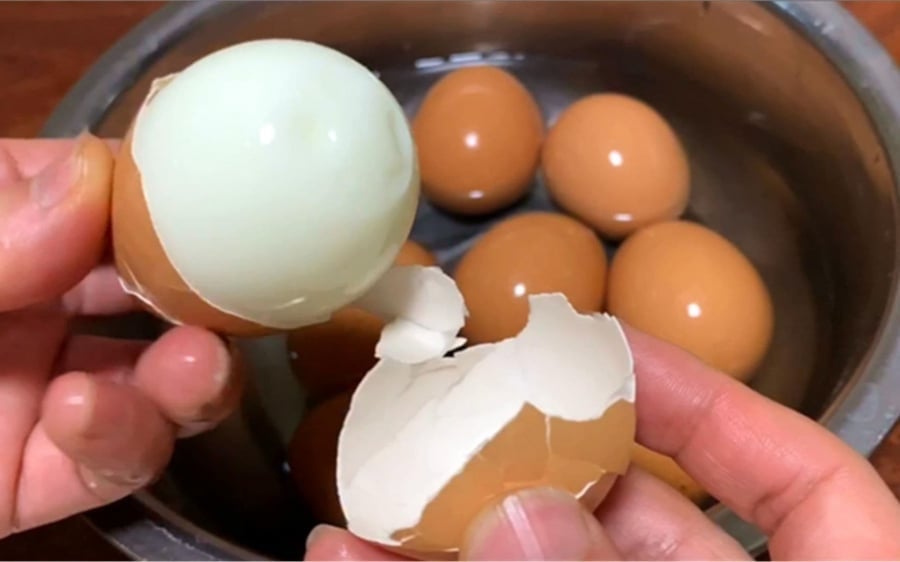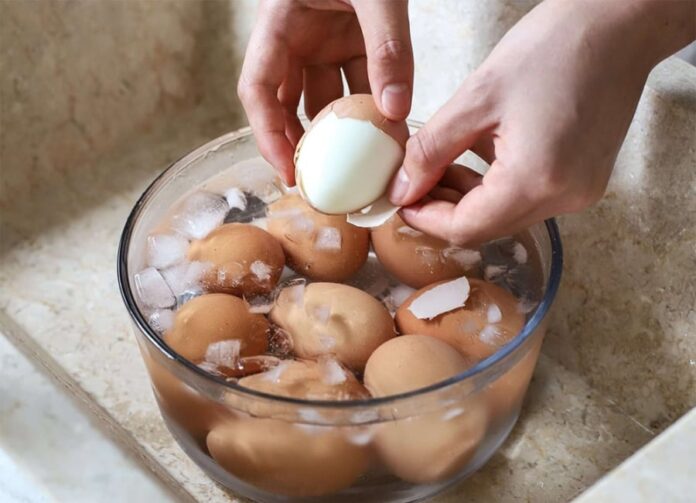Add Salt When Boiling Eggs

The Secret to Perfectly Boiled Eggs: Richer, Easier to Peel, and More Nutritious
Have you ever struggled to peel a boiled egg? Try this simple trick! Just add a teaspoon of salt to the water when boiling eggs, and you’ll notice the difference. The shell will come off easily without sticking, making the peeling process quicker and neater. Plus, salt helps the egg cook more evenly and enhances its flavor.
Add Lemon to the Egg Water
Another interesting tip is to use lemons while boiling eggs. Add a few lemon slices or a splash of lemon juice to the pot. When the eggs are done, you’ll be amazed as the shells slide off smoothly without sticking. This trick also ensures that the egg whites and yolks cook evenly, maintaining their shape without breaking.
Use Vinegar for Boiling Eggs
Similar to lemons, vinegar is also a powerful ally in achieving perfectly boiled eggs. Simply add a teaspoon of vinegar to the water and give it a gentle stir. This simple yet effective trick ensures that the eggs cook evenly, and the shells are easier to peel.
Guide to Boiling and Peeling Eggs Quickly and Efficiently
Step 1: Bring a pot of water to a boil on the stove, then gently lower the eggs into the pot. Add a teaspoon of salt and a few lemon slices, stirring gently. Boil for 5-7 minutes, then turn off the heat and cover the pot. Let the eggs sit for an additional 10-12 minutes to ensure even cooking.
Step 2: After the eggs have sat in the hot water, remove them and plunge them into ice water. Once cooled, peel the eggs as usual. The result? Soft, perfectly boiled eggs with smooth shells that peel effortlessly without breaking.

The Secret to Perfectly Boiled Eggs: Richer, Easier to Peel, and More Nutritious
How to Choose Fresh and Delicious Chicken Eggs
- Inspect the egg shells: Look for eggs with shiny, smooth shells, free from any dark spots or dullness. Eggs with these signs are likely older.
- Feel the egg: Run your fingers over the shell. If it feels rough and slightly textured, it’s a fresh egg. Conversely, a smooth and slick shell usually indicates an older egg.
By following these tips, you’ll not only boil eggs with ease but also ensure the best quality and taste for your dishes!
The Secret to Saving an Over-Salted Dish: A Magic Ingredient to the Rescue!
When it comes to cooking, we’ve all had those moments where we’ve accidentally added too much salt. Throwing away the dish seems wasteful, but it’s equally unappetizing to serve it as it is. So, what can be done? Fear not, as there are a few simple tricks to balance out the saltiness in your soup, stew, or stir-fry.




































